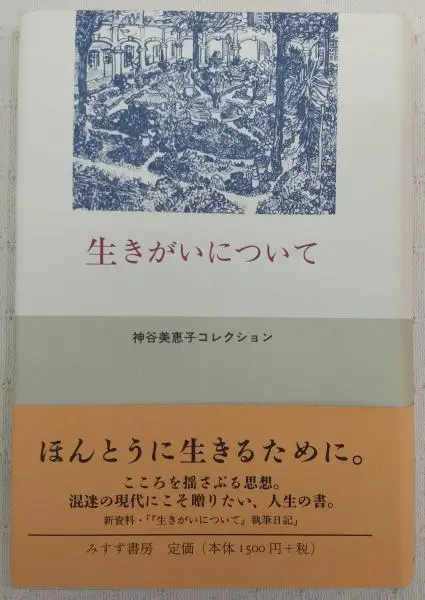Debunking the Ikigai venn diagram myth

Back to the roots of Ikigai (ni tsuite) – on the meaning of life
The Real Story on Ikigai
The concept of Ikigai has captured the imagination of many in the Western world, often depicted as the intersection of what you love, what you’re good at, what the world needs, and what you can be paid for. This popular Venn diagram suggests that achieving balance among these elements leads to discovering one’s true purpose. However, this portrayal is a Western adaptation and does not accurately reflect the traditional Japanese understanding of Ikigai.
The ikigai story in a cartooned video
Origins of the Misinterpretation
The now-famous Ikigai Venn diagram was created by Spanish psychologist and astrologer Andrés Zuzunaga in 2011 as a model for finding purpose. In 2014, entrepreneur Marc Winn incorporated the term “Ikigai” into this model, placing it at the center. While the diagram gained global popularity, it inadvertently misrepresented the authentic meaning of Ikigai.
The Authentic Concept of Ikigai
In Japanese culture, Ikigai refers to the reason one gets up in the morning—a deeply personal sense of purpose that brings joy and fulfillment. According to Mieko Kamiya, a Japanese psychiatrist and author of Ikigai ni Tsuite (On the Meaning of Life), Ikigai is not necessarily tied to career success or lofty life goals. Instead, it can be found in the small, meaningful pleasures of everyday life.
Examples of Ikigai could include tending to a garden, enjoying a cup of tea, or connecting with loved ones—simple acts that enrich daily life and provide a sense of purpose.
Key Differences Between Western and Japanese Perspectives
- Individual vs. Collective Focus:
The Western adaptation emphasizes personal fulfillment and professional achievement, while the traditional Japanese view incorporates community and collective well-being. - Daily Life Integration:
Ikigai in Japan often emerges from routine activities and small joys, rather than large, career-centric aspirations. - Misplaced Emphasis:
The Venn diagram suggests that Ikigai is found at the intersection of specific external factors, whereas the Japanese concept is more about an intrinsic sense of purpose.
Implications of the Misinterpretation
This Western reinterpretation, sometimes humorously referred to as “IK-igai” due to its self-focused nature, risks diluting the cultural depth of the original concept. By simplifying Ikigai into a diagram, we lose its essence—the joy found in the interconnectedness of life’s smaller, everyday moments.
Embracing the True Essence of Ikigai
To truly embody Ikigai, we must move beyond the idea of grand career ambitions or external success. Instead, we should focus on the simple, meaningful aspects of life that bring us joy and connect us with others. Whether it’s the satisfaction of a daily routine or a quiet moment of reflection, Ikigai is about finding purpose in the present.
By embracing this deeper understanding, we can cultivate a more fulfilling and grounded sense of purpose—one that resonates with our inner selves and the world around us.
Acknowledgment
Special thanks to Chivo (in Dutch) for their insightful article on the true meaning of Ikigai. Their work sheds light on the cultural and historical nuances often overlooked in Western interpretations. A insightful learning for myself, I focus far more on purpose since! Nevertheless, the venn-diagram still serves its purpose, I just apply it in a different context during my coaching and leadership facilitation.
Let’s honor the authentic wisdom of Ikigai by appreciating its simplicity, depth, and connection to life’s everyday moments.




